Posts Tagged ‘Refugee Resettlement’
Peace like Breath
These days, peace feels hard to find. International conflicts, ongoing fall-out from COVID-19 and climate disasters can all disrupt our peace and well-being. Yet, at World Relief, we have the privilege of working alongside people who have overcome some of life’s great challenges, finding personal peace even in the midst of difficult circumstances.
That’s why, as a part of our inaugural World Relief Youth Writing Contest, we asked participants in World Relief Durham’s Mentorship Program to reflect on how each of us can be peacebuilders in our own lives and in the lives of those around us.
We are proud to announce Muhammad Hasham Ahmad as our 2022 contest winner! As the leaders of tomorrow, we believe refugee and immigrant youth have important things to say today — things we can all learn and grow from, no matter our age or where we’ve come from.
In his essay below, Muhammad shares how he believes we can all find peace, even in the midst of life’s challenges.
Peace has become a fancy word nowadays. Everyone likes peace but not everyone has it!
For me, peace means to be satisfied — to have a quiet and calm state of mind or simply to be in a situation where you are not worried about anything. From this definition, we can assume not everyone has peace.
Every year, there are millions of people who migrate because of problems they face that make them lose their peace. People leave their home country, some leaving their family and friends, to go to a new country in the hopes of finding peace.
Do you think they find their peace as soon as they land in a new country? No! They still have to face many problems in those new countries too — like my mom did.
She came to the U.S. without knowing any English. At first, she wasn’t able to communicate, but as time passed, she learned English well enough to be understood.
But still my mom worries as millions of thoughts cross her mind every day. Thoughts like: how am I going to provide for my children, myself, housing, insurance, finding work? How are my family back home doing? And many more worries…
Now, let’s talk about how children can lose their peace. Some come to the U.S. with little to no ability to write or speak English because they didn’t have the opportunity to go to school — like I didn’t.
Nowadays, all kinds of people lose peace in childhood because they are worried about living up to society’s standards. Standards like having good grades — fun fact: in an Asian household like mine, you better bring a report card home with all A’s! — a successful future, handling bullies at school, stress from moving, leaving old friends, getting along with new people and much more.
It is natural to lose peace while going through all of this. Everyone wants peace in their life, but not everyone knows how they can find it.
Peace may not be easy to find, but I remember something my teacher once said: “It is human nature to never be satisfied with what we have, so we worry about what we don’t have. If you keep worrying about something you can’t control, you will lose what you can control. So focus on your present rather than the future.”
This helps me find my peace.
We all should work on ourselves to become better, more peaceful people. Focus less on the expectations of others and worries about the future, and you will most likely find peace.
Lastly, I think peace should be as important as breathing. What happens if we don’t breathe? We die! In the same way, not having peace of mind slowly kills you every day and every moment. We lose our concentration and our ability to act and be in the present moment.
So work with the things you can control to save yourself from dying every day. That’s how we can all live a happy and peaceful life!
Pave the Path to lasting change. For young people like Muhammad, finding peace in a new home takes time. You can help create more opportunities for immigrant and refugee youth to heal, thrive and share their voices by joining our community of committed, monthly donors, The Path.
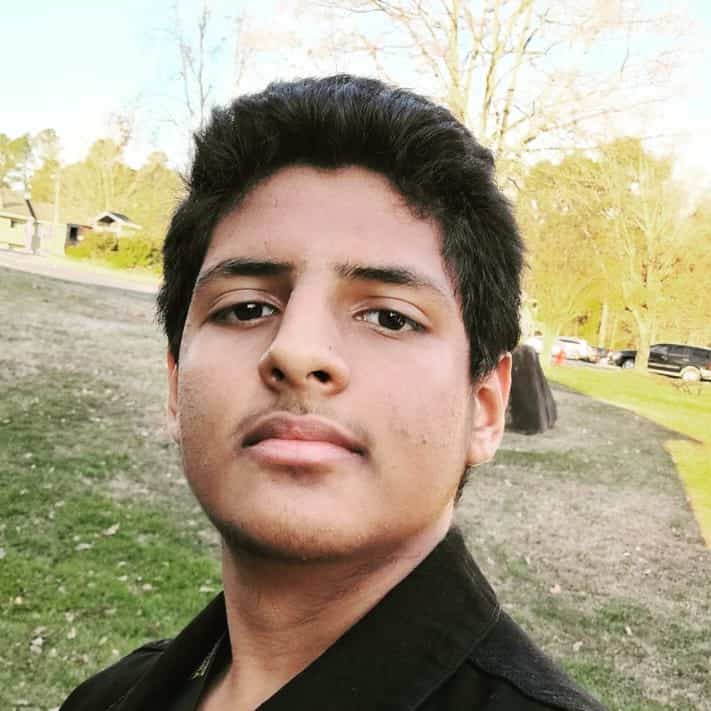
Muhammad Hasham Ahmad is 15 years old and lives in Durham, North Carolina. He came to the U.S. with his family four years ago after leaving his home country of Pakistan. He loves writing and making people laugh with his stories.
Liberty and Justice for All: A Citizenship Story
On September 17, U.S. Citizenship and Immigration Services invites “Americans to reflect on the rights and responsibilities of citizenship and what it means to be a U.S. citizen” as part of an annual Citizenship Day observance. This year, we’re celebrating citizenship and the stability it can bring to those who have been displaced by sharing Aimee’s story.
For the first 24 years of her life, Aimee had no citizenship at all. Born as a refugee in the Republic of Congo and resettled in the U.S. at the age of 15, living without citizenship felt like a continual search for permanence — until July 2, 2022 when she became a naturalized U.S. citizen. Finally, Aimee has a country to call her own!
On the World Relief Western Washington blog, Aimee shares what citizenship means to her and how she plans to use her new nationality to continue serving displaced people around the world.
Do you want to help more people like Aimee Pave the Path to a brighter, more secure future? Whether helping displaced people rebuild their lives, building peace in divided communities or finding sustainable solutions for families impacted by climate change, you can be a part of creating lasting change around the world when you join The Path, our community of monthly givers.
The Humble Lion
Samaki mkunje angali mbichi – Bend the fish when it is still wet and fresh
Mauridi Masumbuko admits that he lives by this Swahili proverb, and to hear him talk about his flexibility and adaptability you would think he had a lifetime under his belt to fully comprehend this invaluable lesson.
But Mauridi, known as Simba to his friends, is only 20 years old. The gregarious and excitable young man speaks upon the topics of faith, family and responsibility with wisdom and insight of someone twice his age.
Born and raised in a refugee camp in the region of Kigoma, Tanzania, Simba began attending spiritual classes with his father when he was just three years old. Although the classes were intended for older children, his father knew the importance of teaching children while they were young and impressionable, and Simba absorbed the Baha’i teachings like a sponge.
These fundamental lessons in his faith allowed him to see life through a unique lens. He found peace while shepherding his family goats in the quiet forests of Tanzania. He learned respect for elders when asked to run his father’s bike shop.
He gained responsibility as he earned extra money for his family, selling bags of peanuts at the beginning of local soccer matches. And he felt true kindness from a community that loved their neighbors as if they were family. This was his community.
Simba’s parents welcomed four more children while in Kigoma, and as the family grew, opportunities outside of the camp became more pressing. Collectively the family decided to apply for resettlement in a third country.
“One of the major reasons to go to the U.S. was the schooling opportunity, to provide for our family and [those] back home,” Simba said.
His father had anticipated the obstacles their family would face, and he encouraged them to remember why they left Tanzania. Once in the U.S., Simba recalls his father saying, “It’s not all of these other fancies – focus on what we talked about – our plan.”
“That kept us going…that was our fuel.”
Usiwe mwoga wakuuliza maswali – Do not be afraid of asking questions
On September 15, 2016, Simba’s family arrived in Durham, North Carolina with mixed emotions. The paperwork provided to them in the refugee camp had been in English – the family spoke Swahili – and the stock photos of a house, two cars and an airplane flying overhead led them to believe that it was a picture of their new life waiting for them in the U.S.
Simba laughs about this when recounting the story, but imagine his surprise when he walked into an 800-square-foot two-bedroom apartment outfitted for his seven family members.
The journey to find his new community in Durham was not easy. During his first year of American high school he was bullied, belittled and told to go home.
“[American] culture is way, way different…literally everything is different,” Simba said. “Making friends there it was like way, way easier because everyone was interested in everybody.”
During this time Simba enrolled in the Refugee Youth and Immigrant Services Department (RYIS) at World Relief where he found a mentor, Rob Callus, to help him through these early challenges.
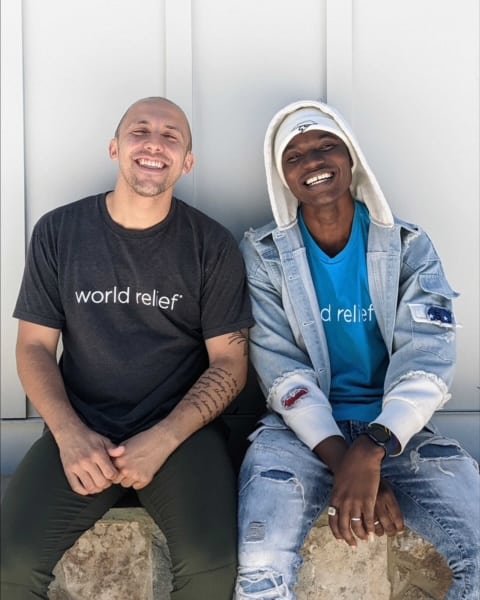
Although his freshman year was unforgiving, Simba found his stride in summer school. Within three months of asking questions, as his mom encouraged him to do daily, he became fluent in English. With the language mastered, he breezed through the academics of high school.
He served as a pseudo-teacher’s assistant for those classmates who had previously laughed at him, stolen his homework and told him to go back from where he came. Simba proceeded to make honor role nearly every semester henceforth. In May of 2019 he was named Durham Public School Student of the Month, and in June of 2020 he was awarded student of the year at C.E. Jordan High School.
Mauridi was not just given the nickname Simba by his peers because he happened to like lions, he proudly earned the title proving his strength, courage and bravery.
After graduation, Simba had an opportunity to answer a personal calling to serve Baha’i youth throughout the U.S., teaching many of the fundamental lessons he had learned as a boy in Tanzania.
A year later, he returned to World Relief Durham to serve as a Youth Fellow under the leadership of his mentor Rob.
Jina jema hungara gizani – A good name shines in the dark
Rob created the Youth Fellows program in 2019 as a stepping stone for former youth program participants. Youth Fellows is a paid position at World Relief Durham that helps former World Relief Clients like Simba gain employable skills such as time management, program development and team building while giving equal attention to higher education, civic engagement and personal development.
That summer, Simba became World Relief Durham’s very first Youth Fellow, and he wasted no time diving in and making the most of his new job. His personal experiences provided a unique perspective for Rob and his team, as he could better relate to the youth RYIS intended to serve.
“He already had the bones and tools inside himself,” Rob said. “Our team created spaces for him to let it shine.”
Like many young adults, Simba has a multitude of stressors competing for his time. He is juggling a full-time job as a Youth Fellow, attending college and assisting with his siblings’ education.
“I’ve learned a lot about meeting him where he is at,” Rob said. “When something is bothering him, you can tell. Some days we just need to sit on the bean bag chairs in the office and talk about school work rather than jumping right into the program for the day.”
It is no secret that Simba misses his home in Tanzania, and after hearing him passionately speak about the community and culture which so lovingly embraced him, I understand. When asked what he misses the most, without hesitation he says, “I miss the opportunity to see transformation in yourself.”
After reflecting on this answer, I wish that I had been courageous enough to sit with his raw, genuine and wise response. But in a hurried fix-all American fashion, I told him that he is transforming the community here. He kindly laughed and humbly said that he doesn’t necessarily think in those terms, but he continues to pray for the ability to be of service to others. Simba, the humble lion, you are already living out your prayers.
You can come alongside young men like Simba and create lasting change by partnering with World Relief. Give today to support programs like Youth Fellows or sign up to volunteer today.
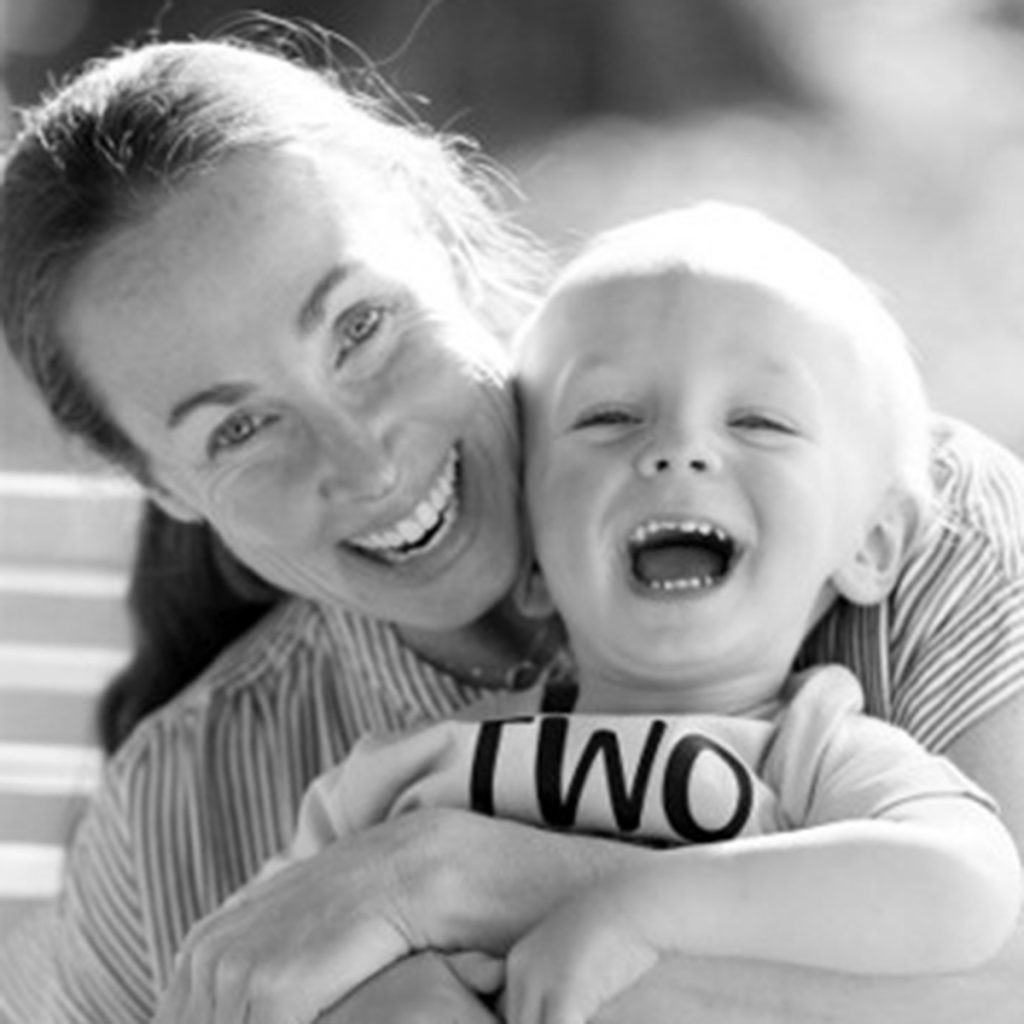
Adrienne Morton began volunteering with the local refugee population in 2013, when asked to teach English to a recently resettled family from Myanmar. She went on to serve as a Resettlement and Outreach Coordinator for Lutheran Services Carolinas. In 2019 she received an MA in Refugee Protection and Forced Migration Studies from The University of London, and currently works as a contract grant and content writer for World Relief Durham. She recently launched BELONG NC, a nonprofit dedicated to providing early education to local immigrant children, in addition to opportunities that empower their stay-at-home caregivers, like herself, to lead and engage in their new community.
A Refugee Family’s Long Resettlement Journey
For refugees seeking to rebuild their lives, their journey to the United States can be long and fraught with challenges. While the average time it takes for a refugee to be vetted and screened to come to the U.S. is about two years, many people leave their homes long before. UNHCR reports that some refugees who flee crises in their home country end up living in refugee camps for years or even decades. However, the vast majority of refugees live in cities, where they may live in limbo for 10 to 26 years, often with limited job and educational opportunities. Nobody wants to become a refugee. And most hope and pray to return to their home country someday.
When that’s not possible, it’s important that countries like the United States welcome refugees and provide a way for them to rebuild their lives permanently. But while their arrival in the U.S. is a cause of celebration, refugees have not yet reached the end of their journey. Coming to the U.S. sets refugees down a new road full of obstacles and barriers they must overcome in order to thrive in their new country.
World Relief’s job is to help the community be a place of welcome for refugees so that they can overcome these challenges and truly celebrate belonging and making a new home. Learn more about how you can walk this path with new arrivals by going on the journey of a refugee family below.
First Day of a Refugee Journey in the U.S.
Behind the Scenes

Even before a refugee family arrives, World Relief staff and volunteers from a local church or community group begin preparation for their arrival. Together, they move furniture and essentials into an apartment so that the family has what they need to feel comfortable and at home. By the time a refugee family arrives, they will have a home equipped with beds, a kitchen table, chairs, a couch, other furniture, and kitchen utensils. Volunteers like you also stock the pantry with familiar foods, coffee or tea, and cooking essentials. This helps provide a safe and welcoming place for a family to rest after their travels.
Arrival
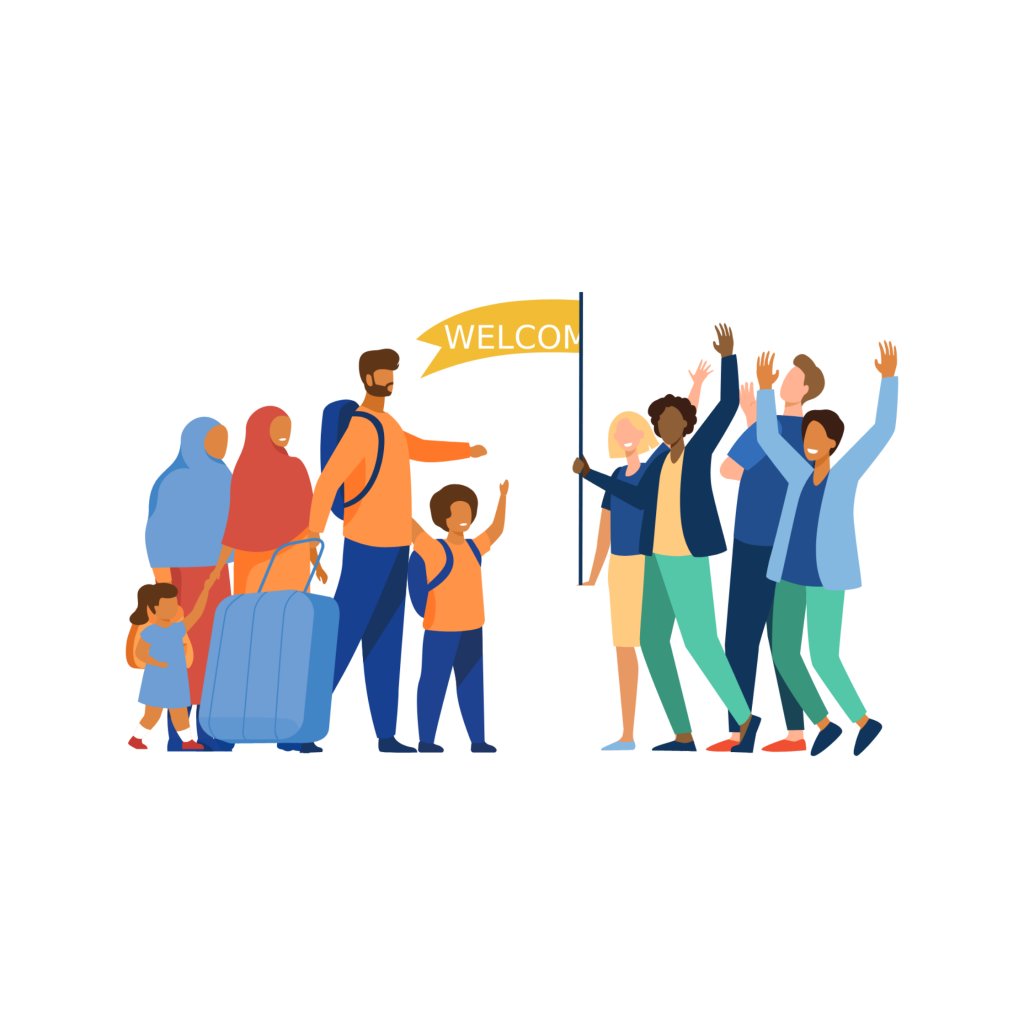
When a family or individual arrives to the United States, they often bring with them hopes and big dreams for the future. They are still mourning the lives and loved ones they left behind, but they also have expectations and goals for life in the U.S. From the time their plane lands at the airport, World Relief staff and people like you are there to welcome them and drive them to their new home.
First Week
Orientation to the U.S.
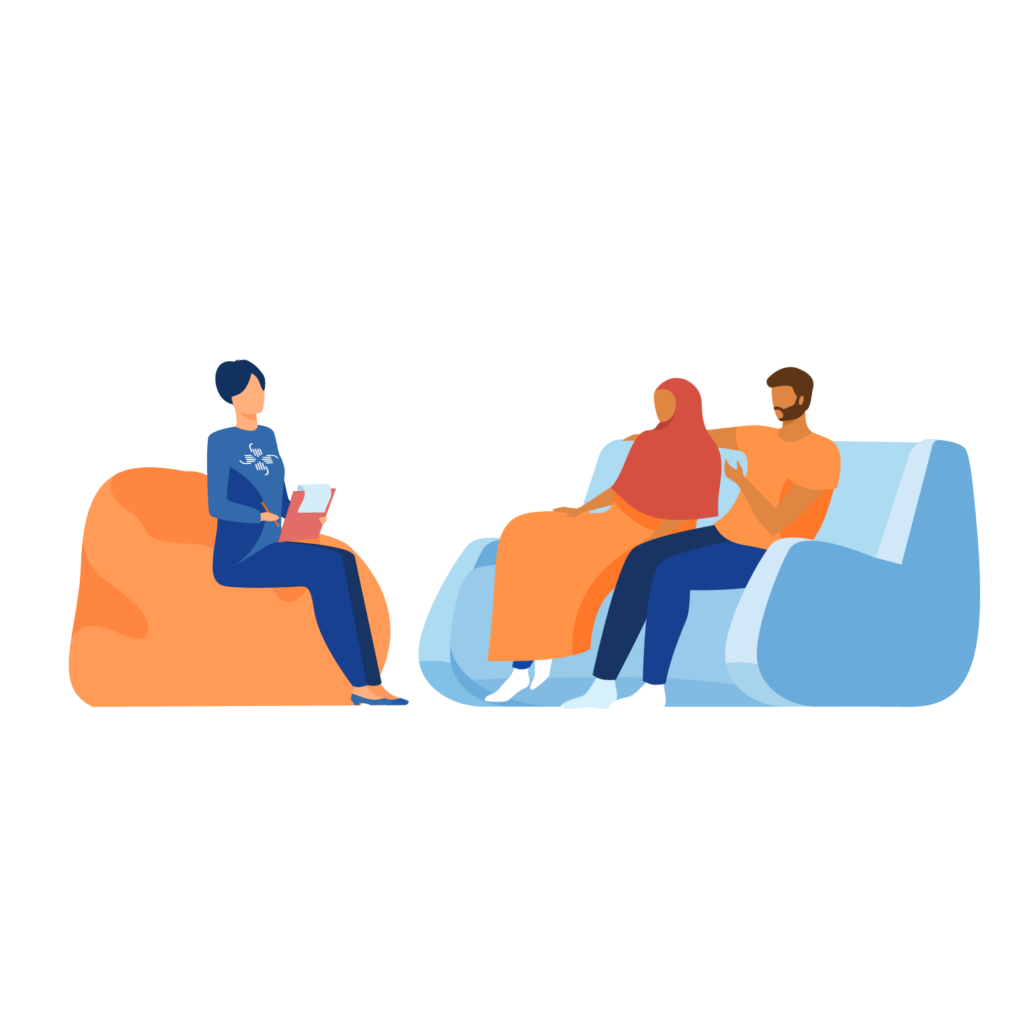
After a few days, the family sits down with World Relief staff and a Good Neighbor Team, a group of committed volunteers from the community who commit to supporting the family for the next six months. Together, they create an action plan to guide the family for the upcoming weeks as they settle in. The family and volunteers share with the family about the community and things they need to know.
First Month
Adjusting to the New Community
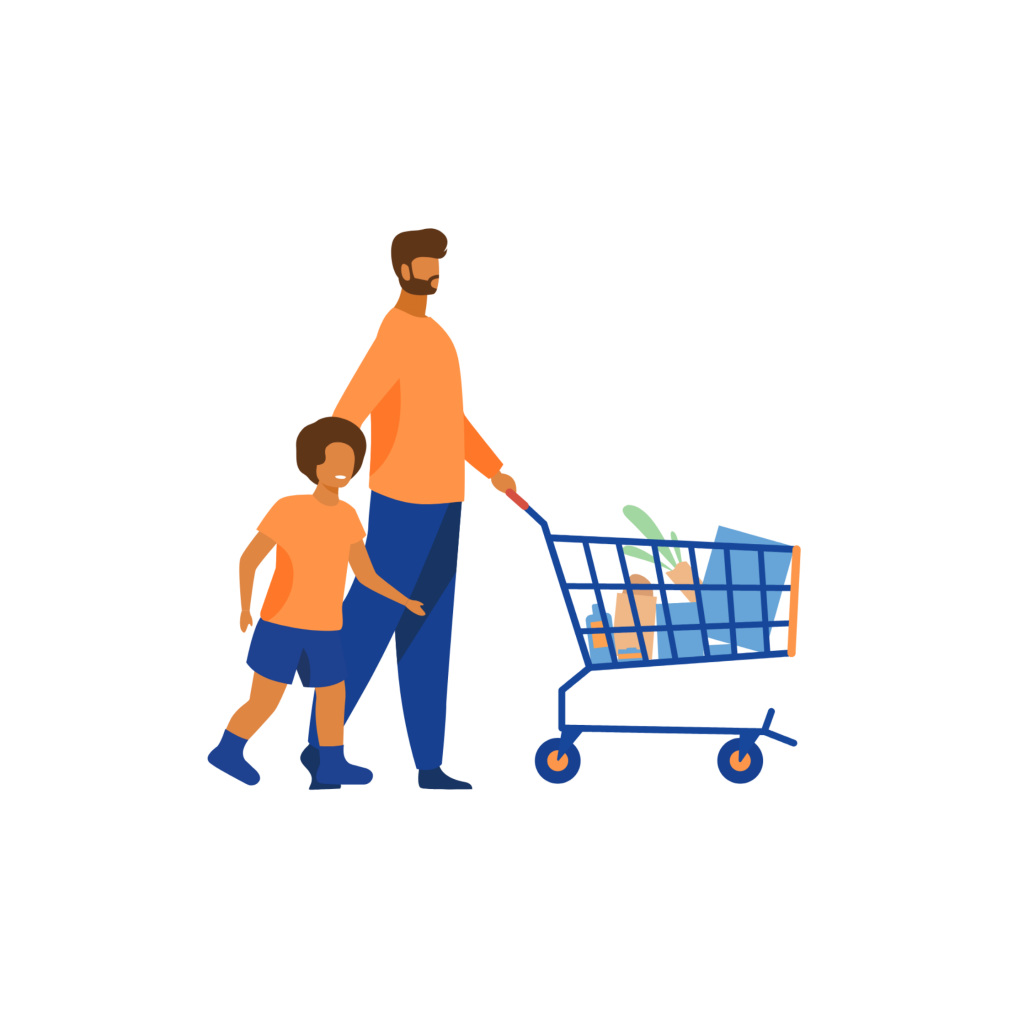
For the next few weeks, the family stays busy. There are errands to run. Doctors appointments to go to. Lots of paperwork. And there are many little tasks to do…everything from applying for social security cards to enrolling children in school.
First Three Months
Support for Children and Youth

As the family adjusts, the kids get to participate in World Relief’s after-school clubs. There, they get homework help, play games, and meet other children. Social-emotional learning (SEL) activities help the children and youth process their emotions and build self-confidence. They learn and play alongside other children and practice important life skills like relationship-building and conflict resolution. And they get academic support from people like you so they can succeed in school!
Learning English
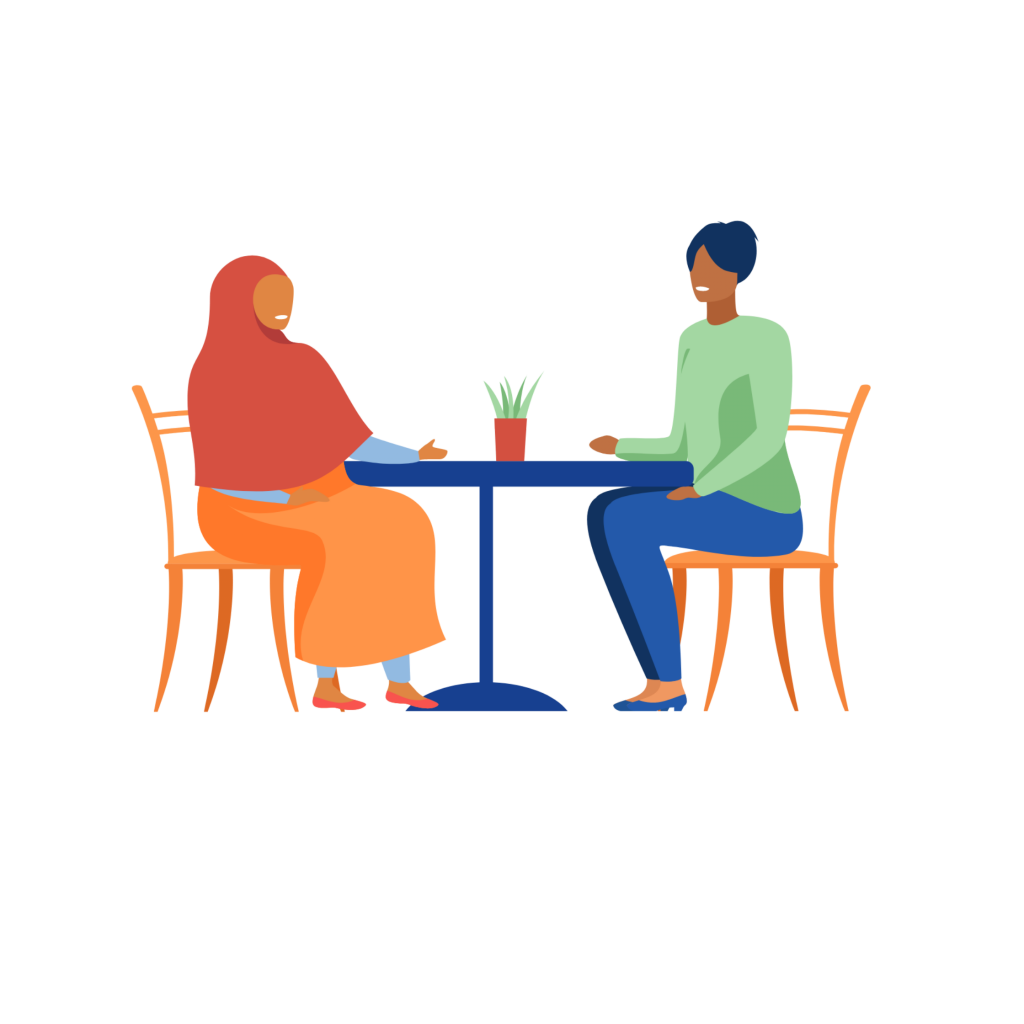
The parents join English classes. There, World Relief teachers, volunteers, and other English learners come together to practice their skills speaking. The family checks out an iPad from the technology lending library, which they use to do English homework and join classes on Zoom. Conversation cafes give language learners the chance to practice their conversational English by talking with community volunteers like you.
Starting New Jobs
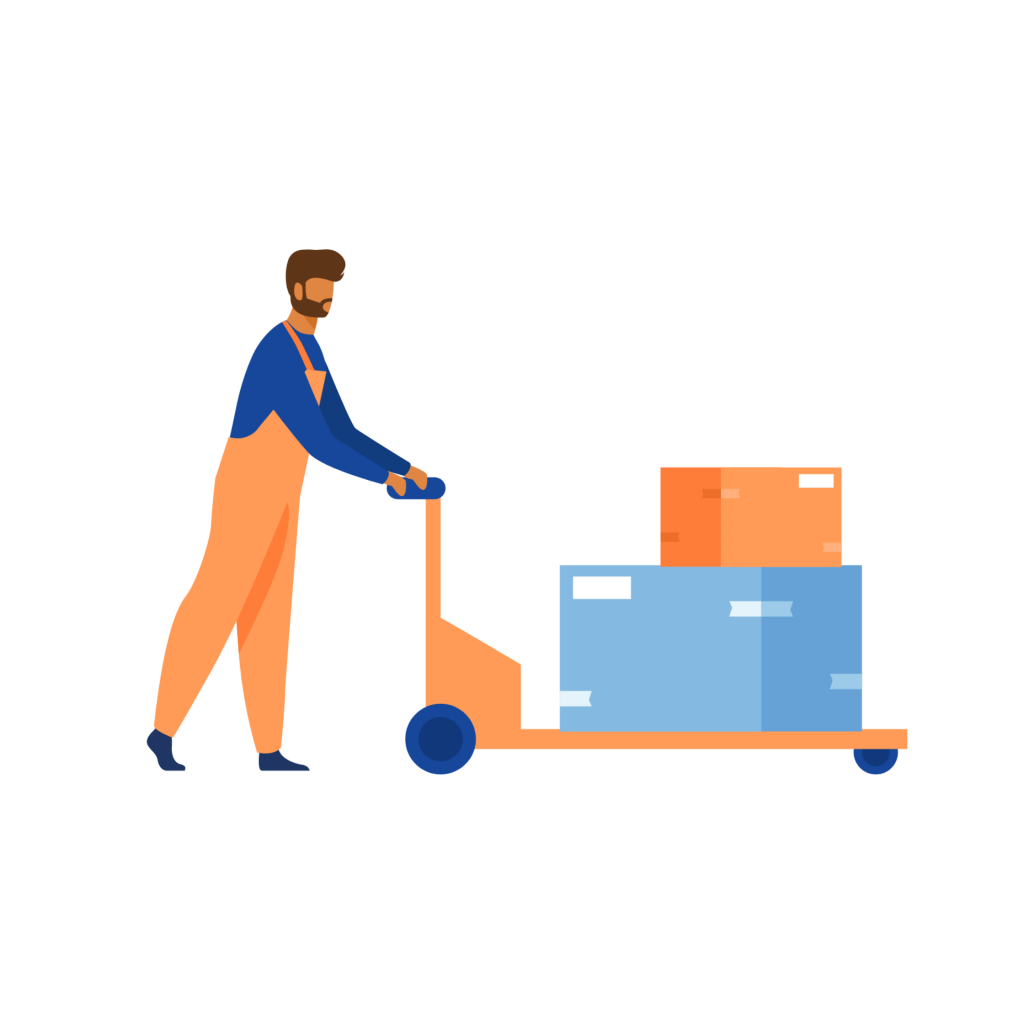
Local business partners help the parents start new jobs, and World Relief’s Employment Services team helps them prepare for their new roles and start work. Later on, the Refugee Career Pathways team will help them brainstorm their long-term career goals and develop job skills.
First Year
Immigration Processes

Eventually, the family will apply for Green Cards so they can stay in the U.S. permanently. They gain the help of a World Relief staff attorney who helps them take this important next step – gathering documentation, filing paperwork, and completing all necessary steps. With affordable, qualified legal help and interpretation, the family does not have to worry about their legal pathway to become permanent residents or citizens.
First Five Years
Community Engagement
After a few years, Mom Sarya gets involved in the community. She joins a parent committee at her daughter Jamila’s school. Along with the other parents, she gets to support her daughter’s teachers and help create a welcoming environment for all students.
Saving for Long-Term Goals
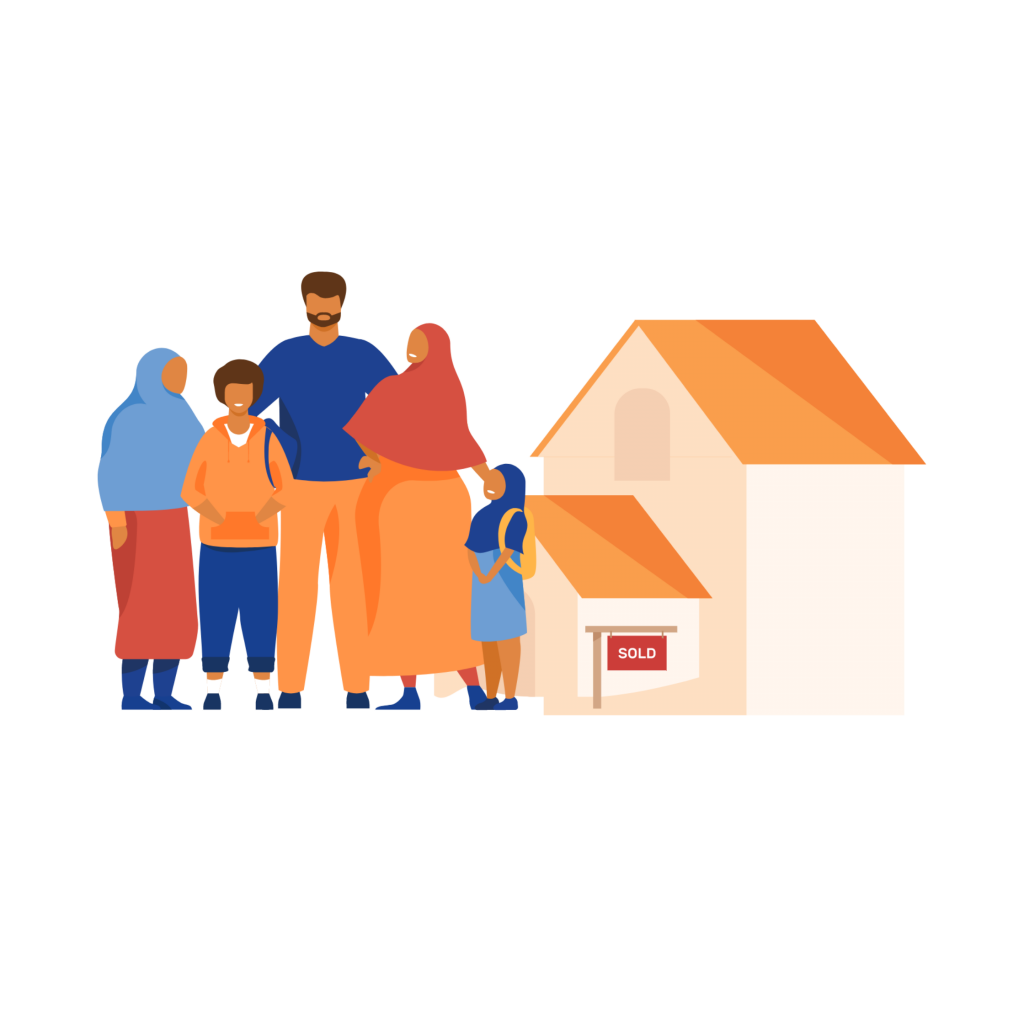
When the Ahmadi family joins the World Relief’s financial literacy program, they start learning how to manage money. They learn about debt, credit, and banking. Eventually, they join a match savings program and start saving money for a home. After a few years of diligent savings, they reach $4,000 and a partner matches their money dollar-for-dollar! They end up with a total of $8,000 – enough for a down payment on a house! Buying a home is a proud accomplishment for the family and a testament to their hard work.
Five Years and Beyond
Reaching Milestones
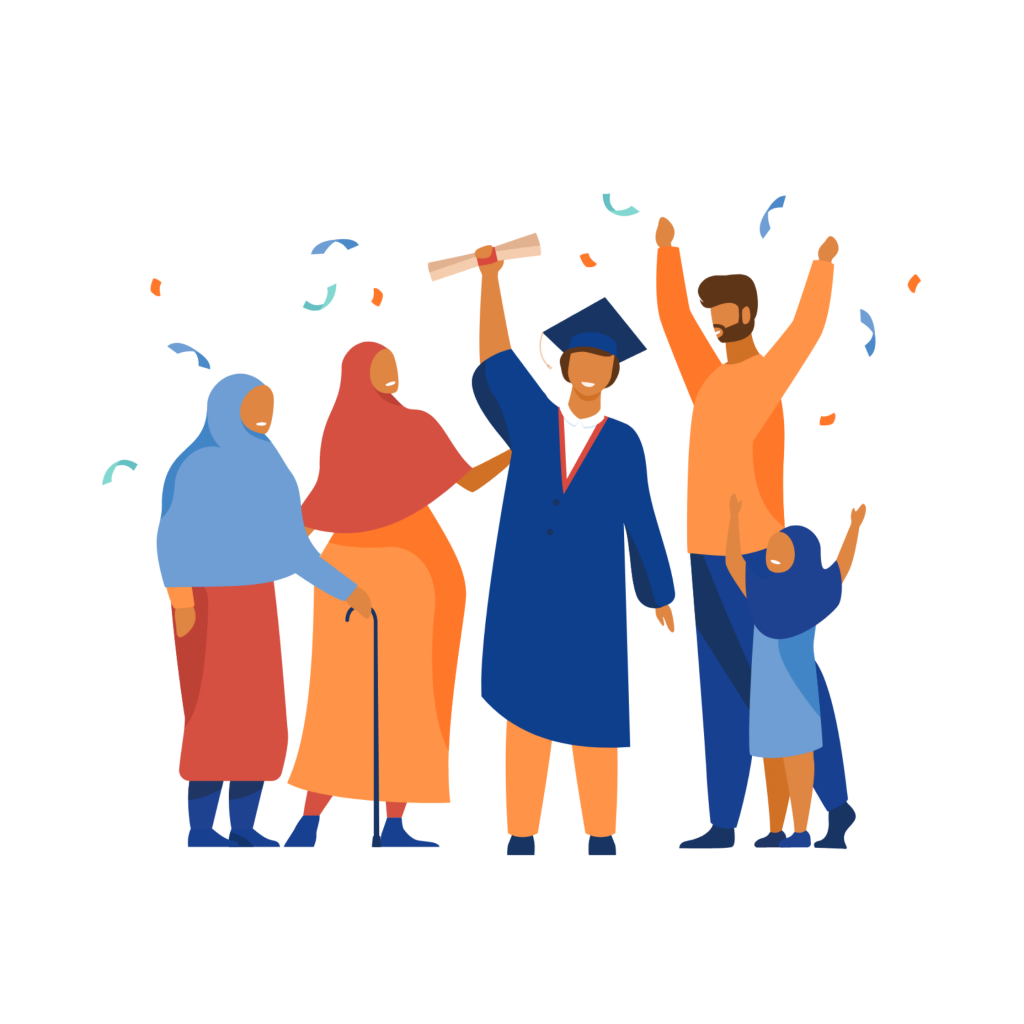
Eventually, the family becomes an integral part of their new community. As they achieve milestones in their careers, education, and personal lives, they celebrate! And we celebrate with them. For years to come, they continue progressing towards long-term goals and building relationships in the community.
Best of all, they move from being welcomed to being “welcomers” and they support other new arrivals on their refugee journey to belonging, just as people like you supported them.
Your Part in Their Journey
It is because of dedicated and compassionate people like you that families like the Ahmadis are able to rebuild their lives in a welcoming community. To find out how you can journey with families today, consider volunteering or becoming a monthly partner by joining the Path.
Read More Refugee Journey Stories
Ali’s Story: A Refugee Pharmacist Using His Career to Give Back to Others
Photo Essay: The Afghan Seamstress Sewing Beautiful Garments in Her New Community
Finally, I’m Home: Raphael’s Story of 8 Years Waiting for Resettlement
Your Family is Coming: The Long Road to Reunion for Refugees
Everyday, people like Ibrahim make the painful decision to leave their homes due to persecution, conflict, violence, human rights violations and climate-related factors. Their journeys are often marked by loss, separation and worry for those left behind.
For ten years, Ibrahim carried the weight of being separated from his family. This is his story of enduring hope.
An Impossible Decision
Ibrahim was born and raised in the Darfur region of western Sudan. He worked a variety of jobs — housekeeping, construction, office administration — in order to provide for his family. He was married with three children and a fourth on the way.
While Ibrahim loved his home and community, civil conflict left him feeling uneasy and concerned for his family’s safety.
For decades, Darfur has been embroiled in conflict fueled by ethnic disputes and limited resources. In 2003, a rebel group launched an insurrection in Darfur, protesting what they believed was the Sudanese government’s disregard for non-Arab ethnic groups in the region. In response, the government armed ethnically Arab militias to combat rebels in Darfur.
Despite international attempts at peacebuilding and intervention, the conflict worsened. Militias threatened the lives and livelihoods of non-Arab civilians, burned down thousands of villages, committed sexual violence and blocked aid organizations from delivering much-needed food and medical supplies.
In 2013, as a renewed wave of violence gripped the region, Ibrahim made the heart-wrenching decision to flee Sudan, leaving behind his wife and children, in hopes of finding help.
“There was too much killing, too much fighting,” he said. “It was impossible to live.”
Seeking Safety
Ibrahim arrived in Jordan, where he had heard help was available. He registered with the U.N. High Commissioner for Refugees (UNHCR), meticulously completing his paperwork.
“I always wrote my kids’ names as my family on all the papers — all the dates of birth and everything,” Ibrahim said. He wanted to make sure records of his wife and children, still in Sudan, were included in his case so that they too would be resettled in a new country with him.
Ibrahim found work, sent money home to his family and waited.
Two years went by until one day, Ibrahim learned that his case had been approved for resettlement in the U.S. He passed all required security and health screenings, but because his family was still in Sudan, they were unable to travel with him.
With help from the International Organization for Migration (IOM), Ibrahim flew to the U.S. in 2016, where World Relief Triad welcomed him to North Carolina.
Ibrahim remembers feeling like he had escaped death.
“When I arrived, I was so grateful for World Relief because they helped me with everything,” Ibrahim said. “They helped me with a place to stay. They were able to find work for me, and they helped until I felt that I could do things for myself.”
And yet, as Ibrahim rebuilt his life in the U.S., he never stopped thinking of his wife and children, still stuck in Sudan. They frequently spoke over the phone — and Ibrahim continued to hope.
“I couldn’t really rest or enjoy all the blessings I had because I kept on thinking about them all the time,” Ibrahim said. “I never felt complete.”
Hoping and Waiting
Now in the U.S., Ibrahim continued working with IOM in the hopes of bringing his family to North Carolina. He was persistent, calling for updates whenever he could.
With IOM’s help, he was eventually able to secure interviews for his wife at the U.S. embassy in Khartoum, the capital of Sudan. Still, the process crept forward slowly.
Then, in 2019, just when everything finally looked ready to move forward, Ibrahim encountered another obstacle — the president of the United States announced a new executive order banning Sudanese people from traveling to the U.S., Ibrahim’s family included.
Ibrahim remembers being told, “Everything is correct, all the papers are the way they’re supposed to be. There’s just some rules that they’re not allowing people.”
He began to doubt whether he would ever see his wife and children again. “I almost lost hope,” he said.
But then, in 2021, he got a call. A new U.S. presidential administration had reversed the executive order. Over the phone, he heard the long hoped-for words: “Your family is coming.”
Ten years after Ibrahim had to leave his family behind in search of safety, after years of hoping and waiting, they would be reunited at last.
Reunited
In February 2022, Ibrahim gathered with staff and volunteers from World Relief Triad at the airport to welcome his wife and four children to North Carolina.
“I broke down in tears because I hadn’t seen them in 10 years, and now they’re here, and it’s real,” Ibrahim said.
“The little one that I left was only three months; when he came, he was 10 years old. I cannot describe how I felt because I never thought — I was at the point of thinking maybe I will never see them again.”
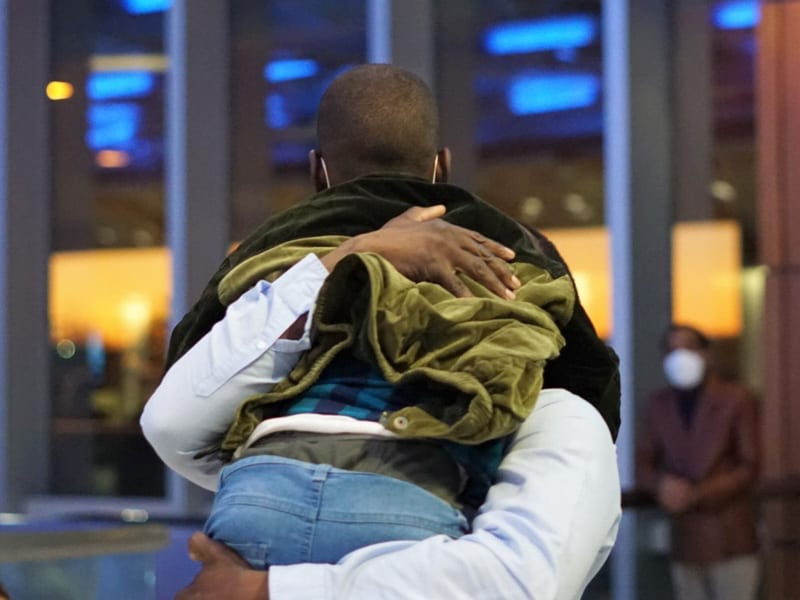
Now, with his family finally together again, Ibrahim has new hopes.
“My hopes are for my kids,” he said. “For them to get the right education, for them to be able to be good people. I want them to make something for themselves and make me proud… for them to benefit themselves and our new country — the United States.”
Remembering Those Left Behind
Even as Ibrahim and his family continue building their new life together in the U.S., Darfur and the family, friends and neighbors they had to leave behind are never far from his mind.
“People are really suffering there. They don’t have food, they don’t have water, they live in very unsafe, unhealthy conditions,” he said.
The UN estimates 2.5 million people are living in displacement camps across Darfur, and 6.2 million people will need humanitarian assistance in the region within the next year. The same factors — war, violence and persecution — that drove Ibrahim and his family from their home are still impacting people in Sudan today.
At World Relief, we recognize that addressing the drivers of mass displacement requires a multi-faceted and holistic response. In Sudan, World Relief is on the ground providing humanitarian assistance and investing in development and peacebuilding efforts to address the underlying factors contributing to conflict and displacement.
Building a just world means coming alongside families like Ibrahim’s once they’ve reached the U.S. and it means finding lasting solutions to the problems that force families to flee in the first place.
For Ibrahim, his hope for safety and brighter futures for those still in Darfur endures — “I really would like for them to… have a better life for themselves and for their kids.”
Together, we are taking action, hoping and praying for lasting solutions for displaced and separated families like Ibrahim’s both in the U.S. and in countries around the world.
Across the U.S., local World Relief offices rely on partners and volunteers like you to help build welcoming communities. Join them on the path to hope, transformation and lasting change alongside refugees and immigrants like Ibrahim.

Kelly Hill serves as a Content Writer at World Relief. She previously served as Volunteer Services Manager at World Relief Triad in North Carolina before moving to Salt Lake City. With a background in International and Intercultural Communication, she is passionate about the power of story to connect people of diverse experiences.
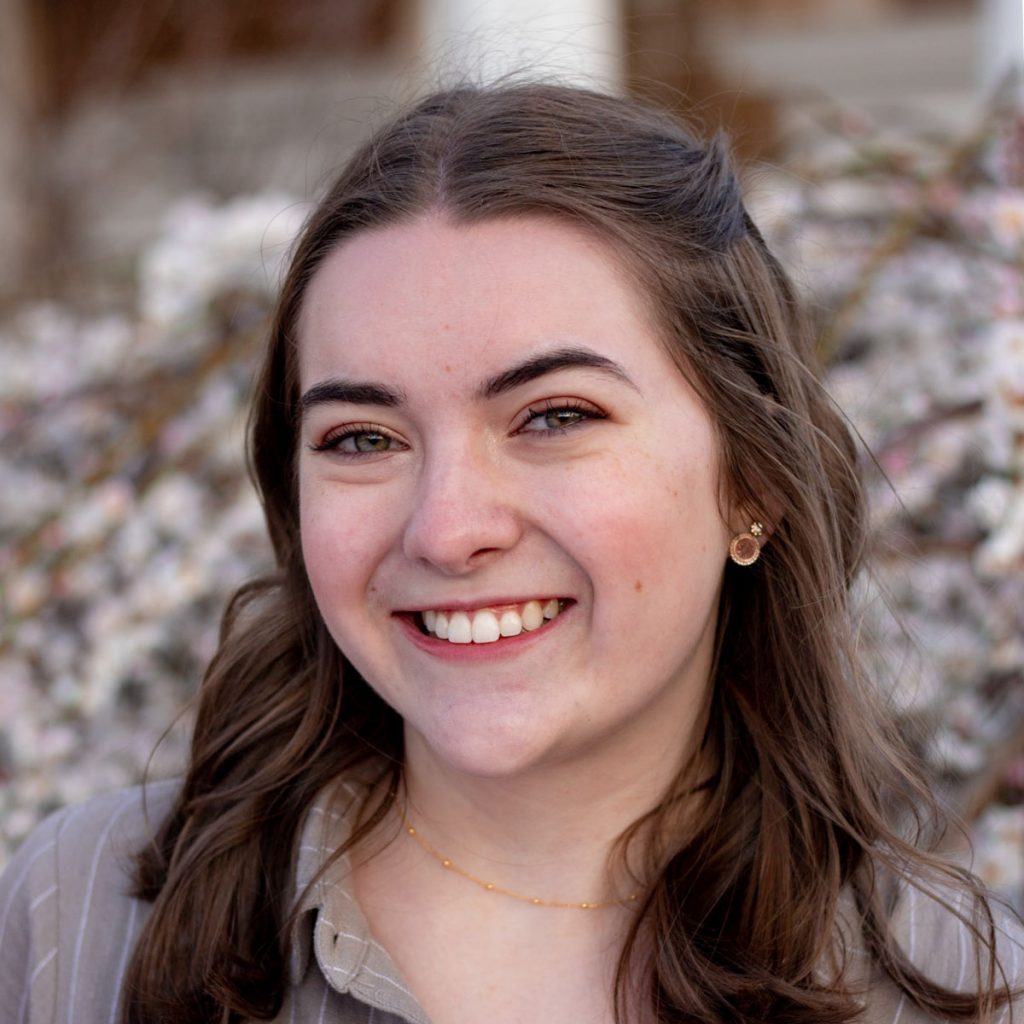
Abby Ray has been serving as the Communications & Advocacy Coordinator at World Relief’s Triad office since September 2021. She works to amplify the voices of clients, staff and community members by empowering them to share their own stories.
Stewarding God’s Grace: Q&A with Andrea Sheldon Tshihamba
“Each of you should use whatever gift you have received to serve others, as faithful stewards of God’s grace in its various forms.”
— 1 Peter 4:10
When Andrea first arrived in Durham with her husband four years ago, she left behind a career as an ESL teacher. Burnt out and looking to apply her energies to other outlets, she discovered World Relief Durham through a friend of her husband’s. Andrea felt called to help.
At first, she was not looking to resume her ESL teaching. After spending time getting to know people within World Relief, Andrea was assigned to be a friendship partner to a family of new arrivals from Afghanistan.
“I was asked to accompany a now-former World Relief employee to visit two Afghan families – brothers, wives and nine kids all in one apartment,” Andrea said. “They told me their biggest need was for their wives to learn English.”
Upon hearing this, Andrea felt as though God was speaking directly to her through this family and challenging her.
“At the time, I was not currently teaching English and wasn’t planning on changing that, but I couldn’t stop myself from agreeing,” Andrea said. “Immediately, it became clear that this opportunity was a gift from God. I asked myself, ‘why was I not using what I knew how to do?’”
In rising to God’s challenge, Andrea has seen her community unite alongside her in leveraging talents and passions to serve. Now, as she works to mobilize other volunteers from her church she sees the immense impact World Relief has daily.
“You’re the first friendly face a new arrival sees in a place so different from where they came, and that’s a meaningful thing that they can hang on to when it’s hard and feel different,” Andrea said. “People are sometimes unkind. So, trying to love, lead and be friends with people arriving is a transformational act both for those arriving and those extending God’s love. It is an essential pillar of our faith and in being a good person in general.”
This week, as we celebrate and observe National Volunteer Appreciation Week, we’re excited to share more of Andrea’s story with you.
Tell us more about how you got connected to World Relief.
Before moving to Durham, I was an ESL teacher and worked with immigrants in class.
When I moved here, I wasn’t looking to teach ESL. I wanted to help refugees in other ways, and I was already comfortable working with people with the lowest level of English. Dave (Andrea’s pastor) pointed me to World Relief.
He paired me with a friendship partner, which was very difficult – the woman was older, and she had dementia which was unknown at the time. But it was a good learning experience. Next, I was then partnered with a 14-year-old girl from the Democratic Republic of Congo. [She had been] displaced to Kenya, and then arrived in the U.S. when she was in 4th or 5th grade.
The young girl had some learning deficits and posed a challenge. There have been periods when I’ve seen her multiple times a week when she needed more support. I would pick her up from school, grab a bite to eat, then work on vocabulary and tutoring.
Through this, I feel like I now have a close relationship with her family. I became close enough to go to her school with her mom and contact the teachers. We also have fun together. I will never forget when she said to me once, “You’re so much more than a teacher.” I’m sort of like the fun aunt in the family. She’s obsessed with K-pop, so I know all this stuff about K-pop.
How have you seen the community impacted by welcoming refugees?
There is an inherent joy in serving and connecting with people new to the community and from different backgrounds and cultures. That joy is transformational.
A few years ago, I was asked to accompany a now-former World Relief employee to visit two Afghan families – brothers, wives and nine kids all in one apartment at first. Eventually, they were able to rent the apartment adjacent.
They told me their most significant need was for their wives to learn English. At the time, I was not teaching English and wasn’t planning on changing that, but I agreed. Immediately, it became clear that this opportunity was a gift from God. I asked myself, ‘why was I not using what I knew how to do?’
For someone interested in getting involved with World Relief, what would you tell them?
I feel my faith tells me to get involved. There are so many passages in the Old Testament that command us to welcome foreigners. World Relief is a great entry point if this is put on your heart through your faith. It’s both a gift and a calling.
World Relief is the access point for us to reach out and impact. I’m always waiting for World Relief to call me and say, ‘we have a family arriving!’ I’ve realized that I have a gift of mobilizing people and getting them to join me on my mission – our mission. It’s what I love to do.
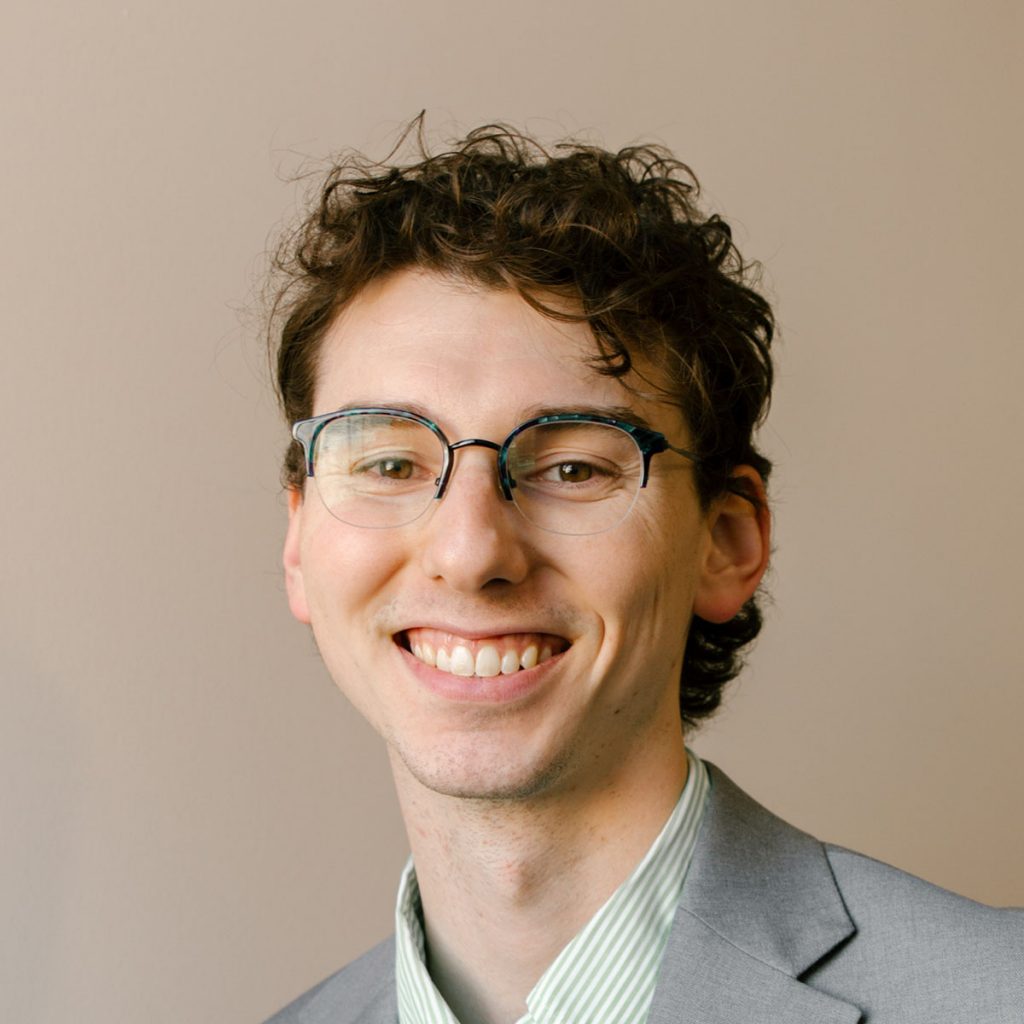
Nathan Spencer is a former Communications Intern for World Relief Memphis. A recent graduate of the University of Memphis, Nathan continues to volunteer for World Relief as a copywriter.
From Welcomed to Welcomer
At the end of April, World Relief will celebrate National Volunteer Appreciation Week, a time to recognize the impact and power of volunteers to “tackle society’s greatest challenges, build stronger communities and be a force that transforms the world.”
Last year, World Relief engaged 8,430 volunteers and 873 church partners in the U.S. to welcome and walk alongside their refugee and immigrant neighbors. Today, Todun Afolabi, World Relief’s U.S. Volunteer Engagement Manager, shares her own journey from welcomed to welcomer.
The Ministry of Welcoming
When I think about God’s heart for welcoming strangers, I think of Ruth and Naomi’s story in the Bible.
Naomi was the mother of Mahlon, Ruth’s first husband. Naomi’s family had traveled to Moab because of famine in Judah. While displaced from their homeland, Mahlon met and married Ruth, a Moabite. But when Mahlon and his father died, Ruth and Naomi returned to Judah as widows.
Naomi knew what it was like to be a stranger in a foreign land, and she was instrumental in helping Ruth resettle in Judah. She showed her how to secure food and, eventually, even connected her with her future husband, Boaz. Through Naomi’s care and advice, Ruth was able to establish a new home.
Needing a Naomi
For me, welcoming newcomers is ministry — and it’s personal.
When I was a stranger in a foreign land, there were many “Naomis” who spoke into my life and helped me adjust to my new home. I’ve learned that you can’t downplay the role of God in your life, especially in how he connects people and brings them together.
In 2011, my husband and I came to the U.S. from Nigeria as newlywed graduate students. As a couple, we couldn’t stay on campus, so we found a small apartment. At the time, we didn’t have enough money for furniture. We were just glad to have a roof over our heads.
We soon started attending a local church, and one of the pastors asked how we were adjusting and if we needed anything. I was hesitant to acknowledge how little we had and how far from home we felt, but we couldn’t hide our needs.
Later that week, I was amazed when the pastor called and asked if we were home. Within minutes, this truck drove up with chairs, a table, a dining room set — everything needed to make the apartment into a home for us.
That was the first of many ways the church surrounded us and helped us through our early years in the U.S. — and as a married couple! Our first car was donated to us by the church. They helped us cover rent expenses when money got a little too tight. When I got pregnant with our first child, they bought maternity and baby clothes and celebrated with us when our son was born.
I think God allowed me to experience the church’s welcome first-hand so I could understand how important it is. They showed us the heart of Christ. Now in my position at World Relief, that same heart motivates me to help others welcome newcomers the way I was welcomed.
Becoming a Naomi
When I joined World Relief as the Chicagoland Church and Volunteer Coordinator in Dupage-Aurora in 2018, it was an opportunity to become a Naomi for others.
I remember meeting a young woman who had recently arrived in the U.S. from Rwanda, and I was telling her my story — how I came and what had happened in my life since. She told me, “If you can do it, then I can,” and I said, “Yes! It’s possible. It’s really possible!”
It’s powerful to see that lightbulb go off, to see the encouragement and the hope that comes when someone realizes that they can do this — and that they don’t have to do it alone. That’s why I’m so passionate about helping the welcomers know and express the heart of God for strangers.
I wanted to keep bridging the gap between churches, volunteers and newcomers not just in Chicagoland, but across the country. In 2021, I transitioned to a role with World Relief’s Home Office as the U.S. Mobilization Specialist and now, I’m the U.S. Volunteer Engagement Manager.
In each of these roles, I’ve seen the mutual transformation that happens when churches and volunteers work together with their newcomer neighbors to welcome them — just like I was welcomed.
Welcome is for Everyone
At World Relief, we want to make room for everyone to be a part of welcoming newcomers, and I’m especially excited to invite those who have immigrant stories like me to volunteer with us. We can play an important role in being Naomis to our new neighbors, helping them adjust and adapt, just like we did.
It was a Naomi in my life who introduced me to volunteering. I started helping at a local food pantry and discovered that it was a good way to give back, but also an opportunity for me to build relationships and integrate. I realized it was a way for me, as an immigrant, to say, “This is my community now, too.”
I’ve learned that — whether you’re an immigrant, refugee, asylum seeker, a church partner or anyone else in the community — you have something to give. Even if it’s an hour a week or giving someone a ride to an appointment, those things really have an impact. I know because they had an impact on me!
Volunteering is where we get to bridge the gap between the heart of Christ and the needs of our community.
I look at my experience and see God’s hand in all of it — in the way I was welcomed and the way I now get to help others welcome. I’m grateful for this ministry God has given us at World Relief, and I’m grateful to have churches, volunteers, neighbors and people like you ministering together with me.
Do you want to create lasting change alongside passionate, mission-driven coworkers like Todun? World Relief is growing our team to meet the increased needs of our world, and we’re looking for people like you to join us.

Todun Afolabi joined World Relief in 2018 and currently serves as the US Volunteer Engagement Manager. With a background in law, she is passionate about humanitarian efforts and engaging communities in their stories of change.
World Relief Welcomes Announcement of Ukrainian Refugee Resettlement and Humanitarian Assistance, Urges Broader Welcome
March 24, 2022
CONTACT:
Audrey Garden
audrey.garden@pinkston.co
571-405-1606
BALTIMORE – Today, President Biden announced a plan to admit as many as 100,000 Ukrainians to the United States as refugees and through other means. In addition, the United States is committing to provide more than $1 billion in new funding towards humanitarian assistance for those affected by Russia’s war in Ukraine and its impacts around the world. World Relief welcomes this announcement of additional humanitarian aid and is eager to welcome more Ukrainians to the United States, while also insisting that the U.S. should also welcome a larger number of refugees fleeing other conflicts globally.
“Prior to the Russian invasion last month, World Relief had already resettled more than 7,300 Ukrainians in the past decade, roughly 40 percent of all Ukrainians admitted to the U.S. as refugees during that time,” observed Myal Greene, president and CEO of World Relief. “We are in close contact with many of these individuals, almost all of whom have loved ones now at risk in Ukraine, and we’re grateful that President Biden’s announcement today seems to open up the likelihood of expedited family reunification and other avenues of protection. We are ready to welcome them, in partnership with local churches and other community partners.”
World Relief is also actively responding to the crisis in Europe, working with local churches and other partners both in Western Ukraine and in Slovakia, Romania, Moldova, Poland, and Hungary to provide immediate humanitarian assistance to Ukrainians who were forced to flee to neighboring countries or are in need of immediate assistance in Ukraine.
“The additional funding provided by the United States will help meet the immediate humanitarian needs of vulnerable Ukrainians who are bearing the brunt of war. We urge the international community to continue to provide humanitarian assistance as generously as possible to vulnerable Ukrainians and ensure there can be humanitarian corridors for civilians to be able to safely leave Ukraine or for aid to reach those trapped inside Ukraine,” said Myal Greene. “Most Ukrainians who make the difficult decision to leave their homes are relatively safe in neighboring European countries, where most would prefer to stay, in part because they hope and pray to return soon to a safe, free Ukraine. But for those who have family in the U.S. or for whom voluntary repatriation is impossible, some may prefer the option of resettlement to the U.S., where we are also eager to welcome and support them as they replant their lives. A multi-pronged approach to this crisis, exploring every pathway of protection for those who can resettle to the United States, while also continuing to support Ukrainians who remain in the region, will be critical as the humanitarian needs climb in the months ahead.”
While pleased with the U.S. government’s intention to welcome a large number of Ukrainian refugees, World Relief is also concerned about refugees who have fled other conflicts. “The Russian invasion of Ukraine is just the latest in a series of wars and conflicts that have fueled the greatest global refugee crisis since at least World War II,” noted Jenny Yang, senior vice president of advocacy and policy for World Relief. “The Biden administration must rebuild the U.S. refugee resettlement program not only for Ukrainians, but also for those who have fled similar conflicts that have garnered less media attention or been largely forgotten in the U.S. — even though the conflicts continue and refugees remain in desperate conditions in neighboring countries for years and sometimes for decades.”
World Relief celebrated the president’s decision last fall to raise the annual ceiling for refugee admissions to 125,000, the highest level in decades. But it has become clear that, without dramatic U.S. government efforts to increase the pace and scale of overseas processing as well as sustained investments in the domestic resettlement infrastructure, the U.S. will resettle, at most, a small fraction of that goal this year. Five months into the federal fiscal year, the U.S. has admitted just 6,494 refugees, which does not include Afghans resettled through a separate process.
“We need to rebuild a robust, nimble resettlement process that can welcome the persecuted from various parts of the world, with a particular concern for those most vulnerable, who may have no safe neighboring country to which to flee. And we must also ensure our asylum laws offer protections to those of any nationality who reach the U.S. and can demonstrate a credible fear of persecution, rights that the Biden administration is currently denying to many who are not Ukrainian under the pretext of the COVID-19 pandemic,” said Yang.
As the president travels to Europe, World Relief urges the president to encourage and support Poland and neighboring countries to continue their welcome of Ukrainian and other refugees. World Relief also urges the international community to stand in solidarity with the Ukrainian people by providing ongoing humanitarian assistance and facilitating diplomatic solutions to resolve the conflict.
“We hope and pray that the Ukrainian people will know peace and security in the near future. And we call upon the global church to support the Ukrainian people, and others experiencing conflict, as robustly as possible,” said Myal Greene.
Individuals interested in supporting World Relief’s humanitarian response in and around Ukraine can find more information at worldrelief.org/respond, while those interested in supporting resettlement efforts within the U.S. can find a list of World Relief resettlement locations at worldrelief.org/us-locations.
To download a PDF version of this press release, click here.
About World Relief
World Relief is a global Christian humanitarian organization that brings sustainable solutions to the world’s greatest problems — disasters, extreme poverty, violence, oppression, and mass displacement. For over 75 years, we’ve partnered with churches and community leaders in the U.S. and abroad to bring hope, healing and transformation to the most vulnerable. Learn more at worldrelief.org.
Efoe Davis: Resettlement Through the Eyes of a Caseworker
Efoe Davis is a caseworker at World Relief Western Washington in our King County office, who regularly meets with individuals and families as they transition to their new life in the U.S. Here, he shares the joys and challenges of resettlement from his vantage point:
The Challenges
On December 20, 2021, I greeted a family of seven from Afghanistan: a mother, father, and five children. They had just arrived in the U.S., and I was their caseworker. After fleeing Afghanistan, they spent time on a U.S. military base as the lengthy paperwork was processed. They finally arrived in Washington and a new community, yet had experienced so much uncertainty, trauma, and waiting in the process. I see a lot of grief and pain in the people I work alongside.
Language and communication are just two elements that can be very challenging as a family resettles in the U.S. This family and I worked so hard to communicate about questions, concerns, tasks like grocery shopping, and how to navigate resources. One of the kids speaks some English, the rest only speak Dari, so we used interpreters when we could, and also lots of translation apps!
Another challenge for families when they first arrive is finding permanent housing, especially for larger families. How do you find a home before you have a job? How do you find a job without a permanent address? How do you find an affordable three-bedroom apartment in King County? These are the types of challenges people face when they arrive, and I get to help them navigate these questions as they work toward self-sufficiency.
The Joys
When this family first arrived, they stayed in two different Airbnbs and a hotel before we found permanent housing last month. As a caseworker, I’ve been surprised and encouraged by how community members have been so supportive and kind. During this family’s stay at their first Airbnb, the owner frequently checked in on them to see if they needed anything. And when a snowstorm hit, she asked if they needed warmer clothes. With their resounding “yes,” she gathered some community support and helped them find the clothes they wanted.
Some of her neighbors got connected to World Relief after that, and are now supporting refugee resettlement through financial donations. Seeing how invested people are in this work reminds me that there are people in the world who have genuine hearts and are willing to do anything to help others in need. It felt like a spiritual connection to have this family at the Airbnb and to know that they (and I!) had the support of the community.
No Two Alike
Each case I work with is so unique. In my experience as a resettlement caseworker, I have seen a wide variety of families. Some are extremely easy-going, open-minded, and able to adapt quickly. Other families come with high expectations and very specific ideas of how they want things to go. But everyone arrives with some experiences of trauma and loss.
Sometimes, I receive praise and gratitude from people, and sometimes people yell at me or are verbally aggressive when things don’t go their way. People come with so many different experiences, personalities, histories, and expectations. I think part of my role is just to be with people as they are, and not force them into a box of how I think they should be or act.
As an immigrant myself, I understand the difficulties of resettling in a new place, especially when language is a barrier to progress or communication. I feel very grateful to help so many families coming here for the first time to find a home, a community, and a new and better life. I am also grateful for this community and the ways you have made resettlement just a little bit easier for these families.
– Efoe Davis, World Relief Caseworker
Check Out World Relief Resettlement Services in Western Washington:
Welcoming Afghans in San Diego
Since August, World Relief has welcomed and resettled over 1,000 Afghans who had been evacuated out of Kabul. Today, over 34,000 Afghans remain on eight U.S. military bases awaiting their chance at a new life in the U.S. World Relief is diligently preparing to resettle up to 7,000 of these brave individuals between now and March 2022.
The need is great, and we couldn’t do this work without the help of partners like Hope for San Diego.Today, Susie Fikse, Executive Director at Hope for San Diego, talks about why partnering with World Relief is critical to Hope for San Diego’s mission. Read more to find out how you and your community can move with us, just like Susie and Hope for San Diego have done. Together, we can create communities of love and welcome that we all feel proud to be a part of.
First, can you tell us a little about Hope for San Diego?
Hope for San Diego is an independent non-profit with a mission to engage our community to care for and invest in our under-served neighbors. Our focus areas include refugees/ immigrants, sex trafficking, foster care and homelessness—all pressing issues in San Diego.
How did you first get connected with World Relief?
Twenty-five years ago, I was living in Atlanta. The church my family attended was involved with World Relief, and I signed up to bring Thanksgiving dinner to a refugee family. I remember standing at the door of this family’s small apartment. There were eight people living there. They had no furniture in the living room, but they welcomed me and my family and offered us drinks and fruit. We couldn’t really communicate because of the language barrier, but it was a really meaningful and eye-opening experience.
How did you help bring World Relief to San Diego?
Shortly after I took the job as Executive Director of Hope for San Diego, we began working with refugees in the area. Soon we realized that there were many organizations doing many different things for refugees — all of them great, but very uncoordinated.
For a long time, I felt the need for some kind of umbrella organization to help bring all our efforts together and to make sure the work we were doing was helping instead of hurting. I knew World Relief would be a great partner to bring us all together and help facilitate healthy ministry.
We connected with the World Relief SoCal office, and they did a few trainings with us and our church partners. But when the border crisis came to a head a couple of years ago, it became clear that we needed the expertise of World Relief in closer proximity to all these needs! It took some time to figure out how to make it work, but in March, we were able to fund the first full-time World Relief staff in San Diego, and a group of churches assembled to collaborate in building a more effective ministry to refugees.
Aside from funding, how else does Hope for San Diego partner with World Relief?
Our partner churches volunteer in different ways through the connections World Relief provides, whether that is building friendships with refugees, providing tangible support like furniture or shoes, or participating in tutoring programs.
We have also hosted World Relief speakers at educational events, which is a powerful way to help our community build a Biblical worldview of immigration. Likewise, we sent a select group of leaders on a Border Vision Trip, which opened eyes to the complexity of immigration issues facing people just 30 minutes from our homes.
How is Hope for San Diego specifically working to welcome and resettle Afghans in your community?
Thanks to the support of people within our eight partner churches and other community members, we were very quickly able to form two Good Neighbor Teams, mobilize volunteers to set up apartments and deliver groceries, secure 40 mattress donations and pre-paid phone cards, among so many other things. The immediate and continued response from the community has been encouraging.
We believe that relationships designed to support self-sufficiency are the key to long term transformation—both of the refugees and the volunteers that engage with them. Our goal is to create a minimum of 10 Good Neighbor Teams (4-5 people each) through our partnership with World Relief that will commit to building genuine, long-term friendships, helping refugee families orient to American life and create a future here.
We also believe another key element of welcoming refugees is educating our community about their plight and celebrating the diversity that they help create so in January, we’re hosting and event called “From Strangers to Neighbors.” Matt Soerens from World Relief will be there to speak and we’re eager for the ways this will engage and equip others in our community to respond.
Why is partnering with World Relief one of the things you’ve continued to hold onto?
The work of World Relief is more essential than ever before. The gaps between the affluent and the poor continue to widen and World Relief is helping to bridge those gaps. When I see a refugee family of nine living in a two-bedroom apartment and six kids trying to do online school while their parents are working two jobs, I know that we need to come alongside these families to provide support. Without organizations like World Relief, these kids are going to fall further behind, which has long-term consequences for all of us.
What is your vision for the Church in San Diego, and how do you see World Relief playing a role in that vision?
Our vision is to see God renew San Diego so that even people in the most vulnerable situations can thrive. Our city is not experiencing shalom in the way God intended unless all people are thriving, not just those within our churches. The Church is the vehicle God wants to use to bring renewal and hope to our city. But that means we have to step outside the church and outside our comfort zone to build relationships. In order to do that, we need the right opportunities and the right training. World Relief provides that for us.
We are so grateful for partners like Susie and Hope for San Diego who remind us that when we move together, we can be an irresistible force for good and an agent of lasting change. Help create communities of love and welcome this season by moving with us and giving today.

Rachel Clair serves as a Content Writer at World Relief. With a background in creative writing and children’s ministry, she is passionate about helping people of all ages think creatively and love God with their hearts, souls and minds.











